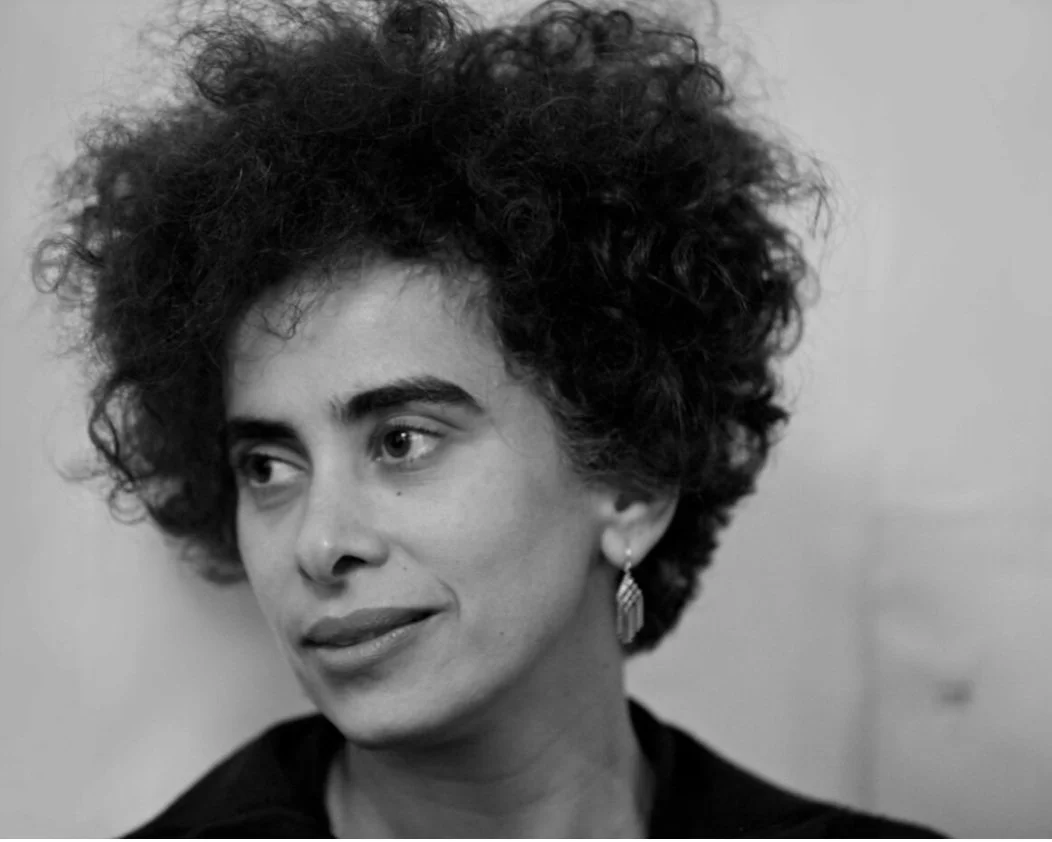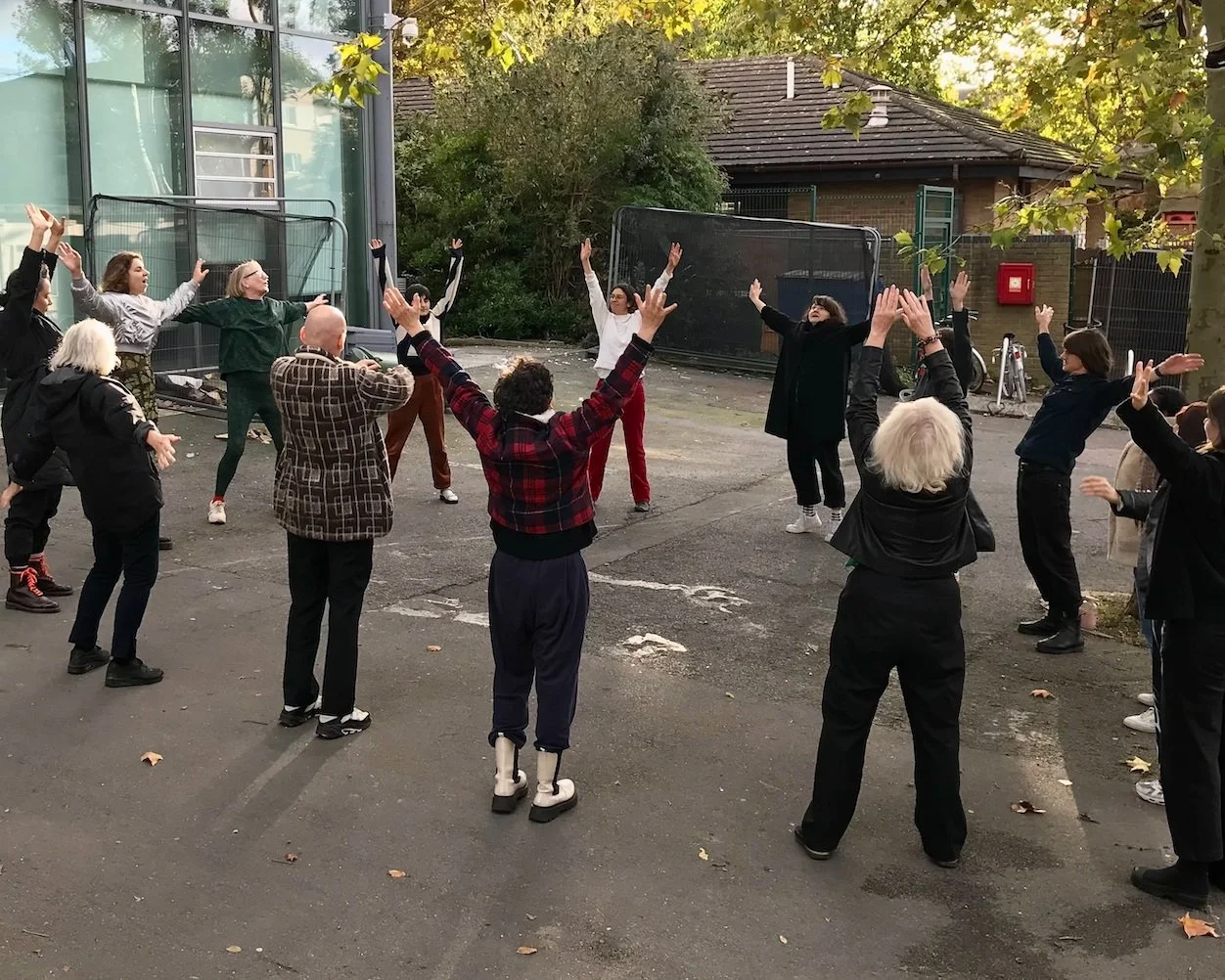Stone Soup: a broth, a shipwreck, and all the fugitive seeds
Wednesday 25 October, 11am-2:30pm
Flat Time House
This autumn, we hold a special gathering for making and eating stone soup. Taey Iohe's ongoing ‘Leak’ research is the starting point for this event, which explores the socio-botanical entanglement of excavated land and our wounded bodies through slow metabolic practice. Taey invites a medical herbalist, Rasheeqa Ahmad, and artist, Rachel Pimm, who, together, have broadened the invitation to create a circle of growers, cooks, thinkers and artists involved in daily practices at the critical intersections of land and food to make a stone soup.
A circle of guests is invited to offer an ingredient to make a recipe for stone soup, which is itself a metaphor and action for the generosity of a communal meal made from many small contributions. Over the course of a lunch prepared and eaten together, a base stock will be enriched and blessed by the group. Each story of spice, herb, or vegetable will map migration and connection to the place and its politics.
In addition to sharing their own ritual knowledge, excerpts of connected texts will be read aloud together. Readings include selections from Anita Mannur’s book Intimate Eating, Racialized Spaces and Radical Futures (Duke University Press, 2022). Tracing how people of colour, queer people, and other marginalized subjects sustain belonging, Mannur reconfigures how we think about networks of intimacy beyond the family, heteronormativity, and borders.
This gathering is an opportunity to come together and create something new, to share our stories, and to build community. It is a space for us to explore the intersections of land, food, race, gender, and sexuality, and to generate new ways of being in the world.
Expressions of Interest
We have limited number of places due to the size of the kitchen. To reserve a place, please send a brief Expression of Interest (c.100-200 words) to feministduration@gmail.com with your story about the chosen ingredient you would like to contribute to the group, by 15 September. We are happy to receive Expressions via video or voice memo (up to five mins) as well as email.
We will let you know if you have received a place, and send you further information about the event including a link to the reading, by 1 October.
Bios
Rasheeqa Ahmad
Rasheeqa (Hedge Herbs) is a herbalist in her community in Walthamstow, North East London. She has been practising since 2012, offering treatment with herbal medicine and teaching about its many aspects, alongside a wider mix of work whose aim is connecting us as communities with the potential of this knowledge and craft as a way to develop healthier living systems and relationships. She has contributed writing to artist publications around these themes and has presented talks around the histories and politics of plant medicine and healthcare. Rasheeqa is inspired by her early involvement with the Radical Herbalism Gathering in exploring how to make plant medicine accessible and restore balance to its practice in the contexts of systemic inequalities and oppressions that are part of our shared histories. @HedgeHerbs
Taey Iohe
Taey is an artist and writer whose work spans across diverse media, including text, moving images, social practice and assemblage through an Asian crip/queer feminist lens. Their practice fuses research-based works with personal narratives that challenge socio-botanical entanglements in social medicine and climate justice. Taey is a co-founder of the Decolonising Botany Working Group and has presented the performance A Refusing Oasis at Documenta 15 (2022). Taey holds a PhD in the programme of Gender, Identity and Culture at the School of English and Film, University College Dublin, funded by Writing On Borders. A member of the Feminist Duration Reading Group’s Working Group, currently Taey is a resident at Somerset House supported by an exchange bursary programme. (@taey.iohe)
Taey acknowledges the support of the Develop Your Creative Practice grant from Arts Council England
Rachel Pimm
Rachel (they/ them/ theirs) is a research-based artist searching for the origin of things, telling material stories, finding the political - the feminist, queer, sick, and postcolonial - in the animal, vegetable, and mineral. Their work is often collaborative and has been presented at the Serpentine Gallery, Whitechapel Gallery, and Royal Academy in London, and art centres in the US and around Europe. Rachel is Associate Lecturer at Camberwell College, UAL. @rachelpimm
Flat Time House
Flat Time House (FTHo) was the studio home of John Latham (1921-2006), recognised as one of the most significant and influential British post-war artists. In 2003, Latham declared the house a living sculpture, naming it FTHo after his theory of time, ‘Flat Time’. Until his death, Latham opened his door to anyone interested in thinking about art. It is in this spirit that Flat Time House opened in 2008 as a gallery with a programme of exhibitions and events exploring the artist's practice, his theoretical ideas and their continued relevance. It also provides a centre for alternative learning, which includes the John Latham archive, and an artist's residency space.
Access
Accessibility to all spaces in Flat Time House is limited by its prior function as a small private home and the restriction to architectural alterations that can be made to the space.
The front gallery is accessible via a portable ramp from the street which we provide. The garden can be accessed via a side entrance from the street and from there the studio, research space, and rear gallery can be accessed via ramp. The rear gallery is entered via a 77cm (30 1/4'') doorway. The kitchen area can be accessed via ramp from the street but accessibility is limited by a 68cm (26 3/4'') interior doorway.
Please phone in advance of your visit.
For more detailed information on accessibility please call Flat Time House on +44 (0)207 207 4845 or email info@flattimeho.org.uk; http://flattimeho.org.uk/about/
Feminist Duration
This gathering is part of the Feminist Duration series which explores under-known texts, ideas, and movements associated with earlier periods of feminist activity in the UK. Initiated as part of a year-long residency at the South London Gallery in 2019, and moved online during the height of the COVID-19 pandemic, the programme juxtaposes earlier moments of feminist with current urgencies and struggles.
By restoring material texture to overlooked political and cultural movements, it seeks to resist versions of the past that reduce feminist struggle to one-dimensional stereotypes. Looking to the past to activate its nascent potential, the programme aims to identify tools that can inspire and enrich further collective action, promoting the intergenerational exchange of knowledge and experience. While honouring earlier feminisms, the series also highlights how collaboration, difference, and dissent have characterised previous feminist movements, and how feminists have both negotiated, and failed to significantly attend to, differences between themselves.
Feminist Duration is generously supported by the CHASE Doctoral Training Partnership.
Image credit: Taey Iohe 2023



